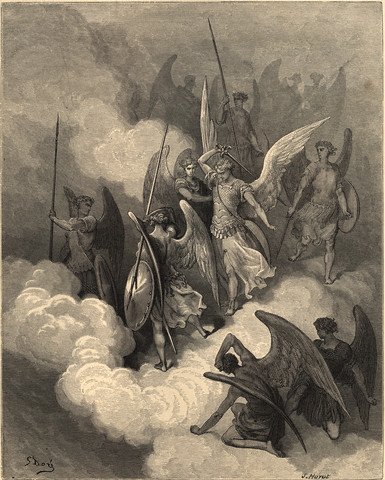 The Secret Thoughts of an Unlikely Convert: An English Professor's Journey Into Christian Faith by Rosaria Champagne Butterfield
The Secret Thoughts of an Unlikely Convert: An English Professor's Journey Into Christian Faith by Rosaria Champagne ButterfieldPublished by Crown & Covenant Publications (www.crownandcovenant.com). 154 pages, including a six page "Bibliography and Resources". Available from the publisher for $12.00.
When a friend recommended that I read this book, I wasn't terribly interested until I found out that the author was a former professor of English at Syracuse University who converted to Christianity. When I found out that she is also married to a pastor who had done church planting with the Reformed Presbyterian Church, the combination was enough to compel me to spend the twelve bucks and give it a go. You see, I am a Baptist church planter in Syracuse, NY who has had the privilege of evangelizing students at SU. If there's ever an "unlikely convert", it would be any professor from SU.
When I got the book I discovered that Butterfield was not only a professor at SU, but that she was also prominent in their feminist Women's Studies program and a lesbian. What I discovered in reading this book is that my attitude has a lot to do with the reason why my ministry amongst the liberal is so ineffective and not the perceived cultural strength of their worldview. More on this later.
A Reservation
I am reformed in my theology; perhaps not as reformed as Butterfield would like, but I do hold to the doctrines of grace. Our understandings on conversion and the gospel are very much the same. What is different is the unique perspective the author brings to the table having come out of not only the LGBT community, but having come out of academia. Academia is a setting I know only a little bit about because of my work doing open-air preaching on college campuses over the last seven years. I know the attitudes towards the gospel on campuses that range from small community colleges to Ivy League campuses.
Some of her writing betrays the fact that the author is either still holding on to some postmodern presuppositions or is infusing a forced relevance into her book to buy credibility with postmodern readers. In the first chapter, "Conversion and the Gospel of Peace", she goes on a bit of a rant. She complains that Christians lost the cultural battle with the universities and aren't relevant to the culture based on a flawed line of reasoning: "Here's what I think happened: since all major U.S. universities had Christian roots, too many Christians thought that they could rest in Christian tradition, not Christian relevance. Too often the church does not know how to interface with university culture because it comes to the table only ready to moralize and not dialogue. There is a core difference between sharing the gospel with the lost and imposing a specific moral standard on the unconverted" (7, emphasis mine).
Butterfield's husband is a pastor in the Reformed Presbyterian Church. It is to the Presbyterians that we owe a huge debt for their understanding on the moral law of God as expressed in the Ten Commandments. The Westminster Catechism, which Butterfield cites later in the book, is clear on the use of the Commandments. The reason why Christians "impose a specific moral standard on the unconverted" is because GOD imposes that standard on all men. As Butterfield's own testimony bears out, conversion doesn't happen through a dialogue which pretends that there are no moral standards. Dialogue is valuable but it must be based on truth and part of that truth will be an appeal to the God who the atheists know is there (Romans 1:18-20) and to the moral law which has the power to bring sinners to the Cross (Galatians 3:24).
Have Christians assumed too much when it comes to the universities? Sort of. Like much else in our culture, we surrendered the universities in favor of a monastic existence. It wasn't a passive act of resting in tradition. It was an active, conscious decision largely influenced by theology which is reclusive rather than aggressive. However the answer to the dilemma is not to pretend that we don't have the answers or that Christ is not King of the university. We do not need to negotiate the truth with unbelievers. We need to proclaim it in Biblically saturated conversations, in the power of the Holy Spirit in a context of love. That's how conversion works. In the university setting at this point in history the people who deny what they know to be true have all of the power, as is evidenced in Butterfield's own post-conversion story. You can own the ontological high ground but in universities it does not matter. Those who hate the truth run the university. And, as the twisted version of the Golden Rule goes, "He who has the gold makes the rules."
Conversion
I am willing to overlook the author's minor shortcoming when it comes to this area because otherwise the book is so solid theologically, so well written, and because it exposes so many sins within the modern understanding of Christianity. It exposes some of my own sins--my own lack of love, my own lack of effort.
One of those flaws is how we view conversion. Butterfield is right when she points out that Christians have distorted the concept of conversion. She writes, "This word--conversion--is simply too tame and too refined to capture the train wreck that I experienced in coming face-to-face with the Living God (page x). Everything she writes in this book about conversion has this radical, all encompassing aspect to it. She rejects easy believism, she denounces Rick Warren's seeker sensitive drivel in no uncertain terms and she emphasizes that God chose her; she did not choose God. How could it be any other way? In fact, it IS no other way with anyone. A feminist, lesbian tenured professor at a liberal institution of higher learning is not any more of a sinner or any more depraved than anyone else. Romans 3:10-18 doesn't describe the worst case scenario; it describes ALL of us.
If you're trying to see a liberal feminist converted and you are approaching her based on the myth of her free will, read these words carefully. "I didn't choose Christ. Nobody chooses Christ. Christ chooses you or you're dead. After Christ chooses you, you respond because you must. Period. It's not a pretty story" (81).
When conversion does come to the totally depraved it changes everything. The author's conversion led to the loss of a secure, tenured position. She lost respect in her community. She lost friends. She gained a church she is committed to. She gained a husband and children. She gained Christ and all that He is. She says, "I sometimes wonder, when I hear other Christians pray for the salvation of the 'lost', if they realize that this comprehensive chaos is the desired end of such prayers" (page 27). Later, closing the wonderful chapter on "Repentance and the Sin of Sodom, she says, "This was my conversion in a nutshell: I lost everything but the dog" (63).
Love
Consider the other flaw in modern American Christianity: how we love our enemies. In short, we don't. In fact, we're not even that sure about those who have converted if they have a pre-conversion background which isn't squeaky clean. Some of this book is hard to read because the author has experienced the hatred of professing believers both before she was saved AND afterwards. By the way, other parts are hard to read because the author is going to expose you to truths you might not have considered before.
Example number one: while counseling a lesbian who was a member of a Bible believing church, the counselee said, "Rosaria, if people in my church really believed that gay people could be transformed by Christ, they wouldn't talk about us or pray about us in the hateful way they do" (25). Read that sentence a couple of times, think about your church, think about your own contribution to this, and ask yourself if you really do believe that homosexuals can be converted. If a homosexual overheard those prayers or those conversations, would they feel loved?
Example number two: when Butterfield moved to the campus of Geneva College in Beaver Falls, PA, the hub of the Reformed Presbyterians, the Scripture signs posted on the front lawns of believer's homes gave her pause. She asked, "Perhaps I or one of my drag queen friends would be welcome to have a cup of coffee at one of these Bible-loving houses, resting our cups between sips on vinyl tablecloths in country kitchens. Perhaps we would be talked with as people made in God's image. But perhaps not" (67). She follows this up with the poignant questions, "Do these Bible verses that sit as placards take up the same cultural space as the rainbow flag that once resided on my flag pole? Are these 'Welcome' signs, or signs that read 'Insiders Only'?" (67-68). Answer honestly: could you invite a drag queen and a lesbian into your home and genuinely love them while presenting the gospel? Would you? Would I? How you answer this question determines, in part, how much you understand much of what Jesus taught on love and how much (or how little) you understand about your own depravity. For my part, I don't like what I'm discovering about myself.
Example number three: years after her conversion her husband was going through the process of candidating at a RPC church and in the process one of the elder's wives read one of the drafts of one of the chapters in the book. Here is her reaction with the author's commentary on it:
"A week later she came to talk. She took a deep breath. All the color drained from her face. She looked like she had just witnessed a crime scene. Manifesting disgust and horror, she told me that she wished that I hadn't shared this with her. She quickly added, 'Oh, I'm fine with this information, but B (the other elder's wife) could never handle it. Do you have to tell people about this?' This. Rosaria's unmentionable past. Rahab the Harlot. Mary Magdalene. We love these women between the pages of our Bible but we don't want to sit at the Lord's Table with them--with people like me--drinking from a common cup. That's the real ringer: the common cup--that is, our common origin in depravity. We are only righteous in Christ and in him alone. But that's a hard pill to swallow, especially if you give yourself kudos for good choices" (138).
Not surprisingly, Butterfield's husband did not get that position. Surprisingly, the Church of Jesus Christ doesn't know much about Him.
This is just a sampling of what you will be smacked upside the head with when you read this book. It deserves a wide audience. Because I believe that, and because I believe that this book could be used of God powerfully amongst postmoderns and Christians, I plan on buying this book by the case to hand out. I hope you will buy one copy, read it, and act on what you discover.




